Fist bumps are more hygienic than handshakes and drastically reduce the risk of spreading infectious diseases, researchers in Britain have found.
The study discovered that a handshake transfers 10 times as much bacteria as a fist bump, following a series of tests at Aberystwyth University on the west coast of Wales.
 Full Story
Full Story
Europe will close an important chapter in its space flight history Tuesday, launching the fifth and final robot ship it had pledged for lifeline deliveries to the International Space Station.
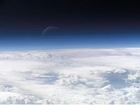 Full Story
Full Story
Giant anteaters in Brazil have killed two hunters in separate incidents, raising concerns about the animals' loss of habitat and the growing risk of dangerous encounters with people, researchers said.
The long-nosed, hairy mammals are not typically aggressive toward people and are considered a vulnerable species by the International Union for the Conservation of Nature (IUCN), largely due to deforestation and human settlements that encroach on their territory.
 Full Story
Full Story
A vast crater discovered in a remote region of Siberia known to locals as "the end of the world" is causing a sensation in Russia, with a group of scientists being sent to investigate.
The giant hole in the remote energy-rich Yamalo-Nenetsky region first came to light in a video uploaded to YouTube that has since been viewed more than seven million times.
 Full Story
Full Story
Some 70 million years ago, three tyrannosaurs stalked together across a mud flat in Canada, possibly searching for prey.
The new insight comes from several parallel tyrannosaur tracks unearthed in Canada. The dinosaur tracks provide stronger evidence for a controversial theory: That the fearsome mega-predators hunted in packs.
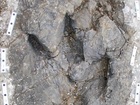 Full Story
Full Story
Thirteen-year-old Lauren Arrington has been busy on the media circuit these past few weeks, doing interview after interview about the sixth-grade science project that landed her in a published scientific paper.
Arrington’s experiment revealed that lionfish — the invasive, venomous species of fish thought to be native to saltwater oceans – could actually survive in nearly freshwater environments, which could potentially damage the marine ecology of estuaries, where salty ocean water and fresh river water mix.
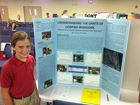 Full Story
Full Story
A U.S. science advisory report says Japan's Fukushima nuclear accident offers a key lesson to the nation's nuclear industry: Focus more on the highly unlikely but worst case scenarios.
That means thinking about earthquakes, floods, tsunamis, solar storms, multiple failures and situations that seem freakishly unusual, according to Thursday's National Academy of Sciences report. Those kinds of things triggered the world's three major nuclear accidents.
 Full Story
Full Story
Back in 2012, the Sun erupted with a powerful solar storm that just missed the Earth but was big enough to "knock modern civilization back to the 18th century," NASA said.
The extreme space weather that tore through Earth's orbit on July 23, 2012, was the most powerful in 150 years, according to a statement posted on the U.S. space agency website Wednesday.
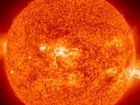 Full Story
Full Story
Earthlings often wonder if life exists on other planets, and researchers said Wednesday that hunting for traces of pollution from distant worlds could provide the answer.
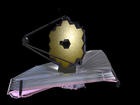 Full Story
Full Story
A cargo craft successfully docked with the International Space Station, the Russian space agency Roskosmos said Thursday.
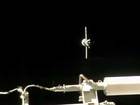 Full Story
Full Story



